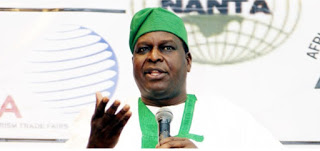ECONOMIC HISTORY AND THE COST OF IGNORING DOMESTIC REALITIES: Lessons for Nigeria
By Missang Oyama
The lessons of economic history have consistently and sufficiently shown that blindly adhering to external policy prescriptions without considering domestic realities often results in economic instability, social discontent, and political agitation. Evidently, countries that embraced Bretton Woods policy options – World Bank and International Monetary Fund (IMF), recommendations of subsidy removal, increase in taxation, and currency devaluation without a proper evaluation of their local peculiarities have frequently found themselves ensnared in a web of severe three hydra-headed plaque of inflation, hunger, and poverty.
The current situation in Nigeria under the Tinubu administration reflects a similar pathway, with the removal of fuel subsidies and the floating of the naira pushing millions into economic despair.
A reflection on the historical experiences of Germany, Japan, and Russia provides a cautionary tale for countries seeking to implement structural reforms dictated by external financial organizations.
In the aftermath of World War II – precisely in 1945, Germany faced crippling economic challenges. The country adhered to World Bank and IMF recommendations, which included removing subsidies and floating its currency. The adoption of these options led to hyperinflation and a sharp decline in living standards of the people. Hunger and poverty became widespread, threatening the stability of the country.
The German government was eventually forced to abandon its existing currency and introduce a new one, the Deutschmark, while simultaneously restoring subsidies in critical sectors like power which it has maintained till date. This decisive action marked a turning point, enabling Germany to stabilize its economy and embark on the journey toward becoming one of the most robust economies in the world and the largest economy in Europe. Crucially, Germany’s recovery demonstrated that pragmatic economic policies tailored to domestic realities could succeed where rigid adherence to external prescriptions failed.
Japan, devastated by the atomic bombings of Hiroshima and Nagasaki and the broader consequences of World War II, faced a similar economic conundrum. The pain of war losses forced the Japanese government to evaluate the best path forward for recovery. Rejecting the Bretton Woods option promoted by the World Bank and IMF, Japan instead followed a course similar to Germany’s, focusing on state-led industrialization and strategic government intervention in critical sectors. Subsidies were maintained, and the yen was tightly managed to promote stability and growth. Japan’s decision to prioritize domestic peculiarities over external advice paid off handsomely, enabling the country to rise from the ashes of war to become a global economic powerhouse within a few decades. Today, the country sits atop as the third-largest economy in the world after the United States of America and China.
The Soviet Union’s experience in the early 1980s under Mikhail Gorbachev illustrates the opposite outcome. Faced with severe economic stagnation, Gorbachev implemented the Glasnost (openness) and Perestroika (restructuring) policies, which included adopting World Bank and IMF recommendations. The removal of subsidies, increase in taxation, and the floating of the Soviet ruble led to galloping inflation and a total collapse of the Soviet economy. These reforms accelerated the disintegration of the Soviet Union, plunging its citizens into unprecedented levels of poverty and despair. The failure of these externally driven policies emphasized the dangers of ignoring the socio-political context and the unique economic structures or fundamentals of a country when implementing reforms.
Nigeria’s current economic challenges echo these historical experiences. The removal of fuel subsidies and the floating of the naira have led to soaring inflation, with the cost of living skyrocketing and millions pushed further into poverty. While the Tinubu administration argues that these measures are necessary to stabilize the economy and attract foreign investment, the immediate consequences for ordinary Nigerians have been devastating. The promise of long-term gains remains speculative at best, especially given the absence of robust social safety nets and a clear comprehensive plan to address the structural weaknesses of the Nigerian economy.
Apparently, economic history underlines the importance of tailoring reforms to a country’s domestic realities. Blindly adopting World Bank and IMF policies without considering the peculiarities of the local context can lead to disastrous outcomes, as seen in Germany, Japan, and Russia. In Germany and Japan, governments learned from their mistakes and pivoted toward policies that prioritized national interests over external prescriptions. In contrast, the Soviet Union’s adherence to externally dictated reforms led to its collapse.
For Nigeria, the lessons are crystal-clear. While structural reforms are undoubtedly necessary, they must be implemented with a deep understanding of the country’s unique socio-economic challenges. A balanced approach that considers the immediate needs of the people, ensures macroeconomic stability, and invests in critical sectors with quick programs is essential. Failure to do so risks exacerbating the current crisis and undermining the country’s long-term prospects. The overtly focus on long-term development of the country without prioritizing the short and medium terms needs of the people is at variance with the Keynesians theoretical underpinnings. As Lord John Maynard Keynes posited, “In the long-run, we would have all died.”
I have no doubt that the Tinubu administration means well for Nigeria. However, Mr. President and his think-tank must take a cue from history and recalibrate his economic policies to address the immediate suffering of Nigerians while laying a solid foundation for sustainable growth. Without this, the current path may lead to greater socioeconomic instability, further eroding the trust and confidence of the people. History has shown that nations thrive not by blindly following external policy prescriptions but by crafting policies that reflect their unique realities and aspirations. Nigeria must heed these lessons if it is to navigate its current challenges successfully.
Oyama is an economist and a policy analyst. He writes from Abuja.




